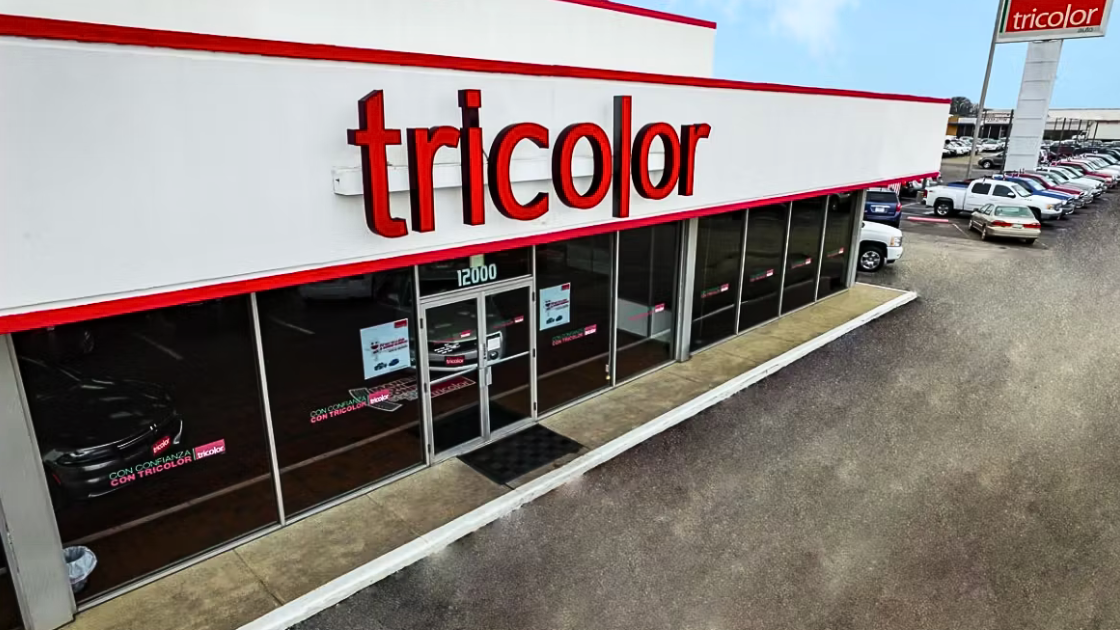
Welcome to another episode of the Car Dealership Guy Podcast.
In this episode, Jack Ballinghoff, COO at Ourisman Auto Group, shares his unique perspectives on the car market and the guiding principles he believes will lead to a new era of retail automotive.

1. Jack’s entrance into the car business.
Although Jack was born in Detroit, he admits he initially didn’t feel tethered to the car industry. However, when he got into college, he learned how to deconstruct stereotypes and put himself into other people’s shoes. This plus his natural competitiveness gave him deep insights into sales tactics, which he would quickly begin to leverage after starting his career in auto retail.
2. Short-term vs long-term thinking.
Jack explains that he saw a lot of narrow thinking in his earlier days as a used car director, noting that many of his peers were focused on front-end transactional growth and not on volume. While this kind of up-front, short-term thinking can create good results on paper, he notes that this success is always temporary. On the other hand, volume growth leads to lasting success, as it translates into a bigger customer base and better retention. Jack urges dealers to teach their managers the values of long-term strategy and to look for the deeper meaning hidden in data.
3. Seeing around corners.
Building long-term value is critical for dealerships. In practice, this means using data to “see around corners,” identifying the factors that will define the next era of car sales. Jack uses this information to lay out Ourisman’s visionary beliefs, some of which he admits may challenge commonly held best practices among his peers. For example, he believes that used car managers should no longer be putting numbers on trade-ins.
“It’s an antiquated belief. Think about their interests and the way a used car manager works. They want to maximize front-end transactional profitability…But as we know right now in used cars, acquisitions are the most difficult part to building a used car department, so they’re restricting intake of the best possible cars within your dealership.”
4. Negotiation vs transparency.
Jack believes dealers will eventually need to eliminate negotiations from the car buying process since negotiations lack transparency. Jack thinks it’s why more and more buyers are trading in their vehicles at Carvana and CarMax, even though they might get a worse offer than at a dealer. Standardizing prices will help improve trust with buyers, lead to more business, and reduce long-term risk.
“When we have leverage, we use it against the consumer, and when the consumer has leverage, they use it against us. There’s a middle ground we’re going to need to find.”

CDK Global - Empowering dealers with the tools and technology to build deeper customer relationships. Learn more at cdkglobal.com.
Impel - Impel enables automotive retailers, manufacturers, and online marketplaces to turn shoppers into buyers, and buyers into lifelong customers, with the auto industry's most advanced AI-powered Customer Lifecycle Management platform. Learn more at impel.ai.
Car Dealership Guy News - The #1 source for concise and unbiased car industry news. Stay informed with the most relevant and interesting stories by visiting news.dealershipguy.com.
5. Accepting trade-ins.
Jack believes that dealers should stop placing as big an emphasis on up-front profit and vehicle quality and focus more on the customer relationship and sales volume. He explains that retailers lose deals by refusing to accept trade-ins over minor issues or “stealing the trade” by under-valuing the vehicle during appraisal. On the other hand, accepting more trade-ins and conducting appraisals honestly will improve customer retention, boost inventory levels, and ultimately lead to more profit. Jack believes that 60% to 70% of trades a dealership appraises should be traded in. Falling below that number results in the loss of customers and credibility.
6. Individuals and standardization.
Individualization and standardization will go hand in hand in the coming years. While some dealers are hoping to use technology to simplify the structure of their companies and reduce headcounts, Jack explains that the only way to form a real connection with humans is through another human. This means that the industry must always make space for human interaction regardless of how far technology develops, even if it results in more complexity.
7. Combatting short-sightedness.
Short-sightedness can ruin a dealership’s chances of long-term success. For example, Jack once took over a struggling Toyota dealership, whose service department took hours to complete a simple oil change. When he asked why this couldn’t be done in less time, the excuse he was given was that the team didn’t have enough technicians. The real issue, he explains, was that the service manager had no interest in lowering the department’s hours per RO (repair order) because he believed it would impact profitability. However, this mindset only hurts the business in the long run.
“What ends up happening is you have this ever-diminishing loop of customers that are willing to pay high hours per RO. That group gets smaller and smaller and defects faster and faster unless you figure out how to reverse that.”
To turn things around, Jack shifted the team’s focus to prioritize total gross, CSI, and retention metrics over hours per RO, ultimately boosting volume and revenue at the dealership.
8. Changing dynamics.
Dealers are starting to lose leverage over consumers, which is why transparency is becoming more key. In the past, Jack notes that access to vehicle information was restricted, but thanks to the internet, buyers now have all the data they need to make the best choice, with or without a dealer. The only form of leverage retailers have now is supply and demand, but using this to their advantage will only sour their relationship with customers. It also runs the risk of more regulatory interference.
“The government’s regulations and CARS rules and those kinds of things, their intentions are correct. Their execution is totally off base…but fair deals for consumers, transparency, saving time, getting rid of bad players, all of those things are admirable goals.”
Jack believes that dealers should always prioritize trust when dealing with customers: in time, this will reduce conflict between buyers and retailers and reduce the need for regulation.
9. Incentivizing the right things.
Jack doesn’t believe the industry has implemented bonuses effectively. Dealers should incentivize the start of the process, such as getting a customer to agree to speak to a manager. In one case, he recalls being able to double sales from the previous week simply by promising staff members a $100 check for each customer that they sat down with. On the other hand, incentivizing the end goal weakens energy levels and makes salespeople feel that they have to work much harder to earn their award.
10. Empowering salespeople.
To enhance their sales team’s abilities, Jack thinks dealers should find a balance between giving their staff the leeway to serve their clients but without lowering the price. Instead, salespeople should be given the time to conversationally connect with customers and conduct a needs assessment. This will ultimately strengthen their relationship with buyers and bring in more money, both for themselves and the dealership. At the end of the day, Jack notes that salespeople are a dealership’s competitive advantage, not just with other rooftops sharing the same franchise but also with rival brands. Sharpening their skills in the right areas will boost a dealer’s overall market share and lead to higher customer retention.
Did you enjoy this podcast recap?
Interested in advertising with Car Dealership Guy? Drop us a line here.
Want to be considered as a guest on the podcast? Add your name here.








